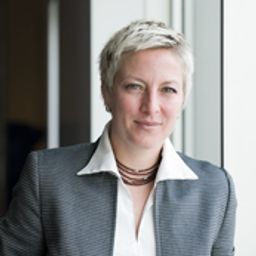
Jennifer Carter is Director of the graduate museology program at the Université du Québec à Montréal, where she is also professor of New museologies, intangible heritage and cultural objects in the Department of Art History. Museologist and art historian, she has held positions in diverse Canadian cultural institutions, including the Canadian Centre for Architecture (Montréal) and the Art Gallery of Ontario (Toronto). Jennifer’s praxis consists of teaching and research in the areas of museology, representation, expology and architecture. She considers how these practices mediate, and are mediated by, the cultural institutions that frame them. A more recent SSHRC- and FRQSC-funded research project takes up the emergent phenomenon of human rights museology, and considers how social justice and human rights are negotiated curatorially, pedagogically, and semantically in cultural institutions dedicated to human rights in Asia, North America and South America. Jennifer has authored and co-authored essays in English and French in international and peer-reviewed journals such as Information Research (2013); Musées (May 2013); Museum Management and Curatorship (2013; with J. Orange, May 2012); MediaTropes (2012); Curator (with J. Orange, 2012); and in book chapters in The Idea of a Human Rights Museum (forthcoming); 14 Arguments in favour of human rights institutions (with J. Orange, 2014); National Museums: New studies from around the world (Routledge, 2011) and Chora Five: Intervals in the philosophy of architecture (2007). In 2013, Jennifer was appointed Associate Editor of the international journal Museum Management and Curatorship, published by Taylor and Francis / Routledge in the U.K.
Sessions auxquelles Prof. Jennifer Carter participe
Samedi 4 Juin, 2016
Dans le cadre de cette session, nous souhaitons faire, dans une perspective multidisciplinaire et critique, un état des lieux qui interroge doublement, à la lumière de trois axes que sont la narrativité, la temporalité et la performativité, la patrimonialisation des sujets sensibles tant sur ses rôles, ses formes et ses effets sur les sociétés qui les entreprennent, que sur sa fonction révélatrice d’un monde en changement. L’espace public laisse une place grandissante aux objets, aux li...
Mardi 7 Juin, 2016
To date, very little literature explicitly explores the relationships of museums and heritage to historical consciousness, despite the overlapping concerns shared by these respective fields. This roundtable addresses the subject of museums as sites of historical consciousness by reflecting on a recent book project. Museums as Sites of Historical Consciousness: Perspectives on Museum Theory and Practice in Canada (working title, UBC Press, 2016) examines (1) ways that museums create and sha...
Sessions auxquelles Prof. Jennifer Carter assiste
Vendredi 3 Juin, 2016
Welcome addresses and cocktail, followed by the Concordia Signature Event "The Garden of the Grey Nuns". As the opening ceremony and cocktail take place in the former Grey Nuns' Motherhouse, recycled into campus residence and reading rooms by Concordia University, delegates will also have the possibility to discover the video Three Grey Nuns (3 minutes, by Ron Rudin and Phil Lichti. Three Grey Nuns recount their memories of communal life in the Grey Nun’s Motherhouse. Built...
Samedi 4 Juin, 2016
What if we changed our views on heritage? And if heritage has already changed? While, on the global scene, states maintain their leading role in the mobilization of social and territorial histories, on the local scale, regions, neighbourhoods and parishes have changed. Citizens and communities too: they latch on to heritage to express an unprecedented range of belongings that no law seems to be able to take measures to contain, often to the discontent of...
Most of what we experience as heritage emerges into conscious recognition through a complex mixture of political and ideological filters, including nationalism. In these processes, through a variety of devices (museums, scholarly research, consumer reproduction, etc.), dualistic classifications articulate a powerful hierarchy of value and significance. In particular, the tangible-intangible pair, given legitimacy by such international bodies as UNESCO, reproduces a selective ordering of cul...
Dimanche 5 Juin, 2016
"What does heritage change?" is a multifaceted question to which the answer(s) are in primary respects related to real-life negotiations among different groups of citizens, cultures, races, ethnic groups, sexual identities, and social classes about received, official and/or widely accepted or accomodated intangible attributes, cultural traditions, historic monuments, buildings, and other transmitted or revived historical legacies. Heritage designated by and for whom, for what motivations, an...
Lundi 6 Juin, 2016
Le patrimoine fait aujourd’hui l’objet d’attentions autant que d’agressions et de destructions. Cela peut s’expliquer par les difficultés de son identification ou de sa conservation. Cela peut plus profondément s’expliquer parce que, dès le départ, il célébre un événement ou conserve une mémoire qui peut être ou devenir une source de dissenssions et de conflits politiques. Enfin, sa reconnaissance suscite des gains économiques pour les uns mais des pertes pour les autres. Mais peut-être...
Mercredi 8 Juin, 2016
||| Les Mohawks constituent la nation amérindienne la plus nombreuse parmi les dix différentes nations que compte le Québec. La nation mohawk compte près de 17 350 habitants. Il y en a 2 700 qui vivent hors réserve et les autres sont dispersés dans trois grandes communautés que sont : Kanesatake, Akwasasne et Kahnawà :ke. Située à proximité de Montréal, sur la rive sud du fleuve Saint-Laurent, la communauté de Kahnawà :ke compte près de 7 300 habitants. Elle est parmi les première...









